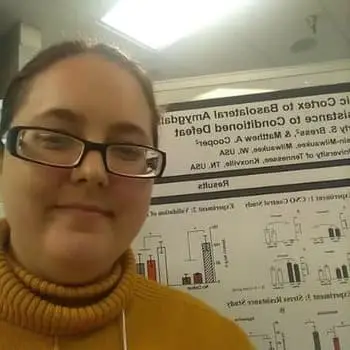Antidepressants can be used to treat co-occurring mental health disorders. Learn more about the many different types of antidepressants and how they work.
Many people who struggle with addiction also have a co-occurring mental health disorder. The most common of these are mood and anxiety disorders, which include conditions such as major depression, generalized anxiety disorder, and obsessive-compulsive disorder. The use of antidepressants can provide relief for co-occurring disorders and aid the recovery process.
People who have a mental health disorder and are also in addiction recovery may be prescribed a specific type of antidepressant. It is important to understand that there are many different types of antidepressants, and each type affects a person’s brain in different ways.
Types of Antidepressants
People are prescribed many different types of antidepressants, but the most common ones work on a group of neurotransmitters called monoamines. These brain chemicals include serotonin, norepinephrine, and dopamine. Though all antidepressants are somewhat similar, the way they interact with brain chemical systems makes each one unique. Types of antidepressants include:
Treatment Can Be Life Changing. Reach out today.

Different Antidepressants
- Selective Serotonin Reuptake Inhibitors (SSRI)
SSRIs are one of the most commonly prescribed antidepressants. SSRIs are prescribed for a variety of mood and anxiety disorders, and they have even been used to treat autism spectrum disorders. They work by blocking the reabsorption of serotonin back into brain cells, which increases the overall levels of serotonin available within the brain. Commonly prescribed SSRIs include Prozac (fluoxetine) and Zoloft (sertraline). - Serotonin and Norepinephrine Reuptake Inhibitors (SNRI)
Like SSRIs, SNRIs are used to treat a range of behavioral disorders, such as depression and anxiety. However, SNRIs can also treat nerve pain. The difference between SSRIs and SNRIs is that SNRIs also increase the levels of norepinephrine within the brain. Some examples of SNRIs include Strattera (atomoxetine) and Cymbalta (duloxetine). - Monoamine Oxidase Inhibitors (MAOI)
MAOIs work by inhibiting a chemical called monoamine oxidase. Monoamine oxidase is responsible for clearing up excess monoamines (serotonin, norepinephrine, and dopamine) within the brain. By inhibiting this clearance system, MAOIs cause an increase in all three of these chemicals. MAOIs are typically prescribed for depression and anxiety disorders. MAOI examples include Marplan (isocarboxazid) and Nardil (phenelzine). - Serotonin Antagonist and Reuptake Inhibitors (SARI)
SARIs are fairly unique in how they act within the brain. There are multiple subtypes of serotonin receptors, and SARI specifically blocks the serotonin type 2 receptor. However, it also simultaneously activates the serotonin type 1 receptor through inhibition of serotonin transporters. SARI antidepressants are primarily used to treat depression, and trazodone is one example of a common SARI drug. - Norepinephrine and Dopamine Reuptake Inhibitors (NDRI)
Instead of acting on serotonin, NDRIs act on norepinephrine and dopamine systems. They do this by blocking norepinephrine and dopamine transporters, which increases the amount of norepinephrine and dopamine available. NDRI drugs are typically prescribed for depression, and the most common NDRIs include Wellbutrin (bupropion) and Ritalin (methylphenidate). - Tricyclic Antidepressants
Tricyclic antidepressants work by increasing the levels of serotonin and norepinephrine. In addition, the drug blocks another neurochemical called acetylcholine. Examples of tricyclic antidepressants include Tofranil (imipramine) and Elavil (amitriptyline). - Atypical Antidepressants
Atypical antidepressants include antidepressants that act in a way that is “atypical” compared to more commonly prescribed antidepressants (SSRIs, SNRIs, and MAOIs). For example, trazodone and Wellbutrin are considered by the Food and Drug Administration to be atypical antidepressants. Other examples of atypical antidepressants include Viibryd (vilazodone), Trintellix (vortioxetine) and a new antidepressant called Spravato (esketamine).
Are Antidepressants Effective?
The effectiveness of an antidepressant varies from person to person. Each individual is going to respond to any given medication differently. There is also some contention as to whether people who are depressed or anxious actually have a serotonin imbalance. This makes some people skeptical about whether increasing serotonin will truly help with these problems.
Another factor that makes some believe that antidepressants don’t work is that these drugs do not work immediately. It usually takes about four to six weeks before someone begins to feel the therapeutic benefits of an antidepressant drug. This is because it takes a few weeks for the brain to normalize the changes created by antidepressants.
Risks of Antidepressants
Though antidepressants can help people cope with depression, anxiety and substance misuse, there are some side effects involved. To stay safe, it is important to be aware of the risks of antidepressants. Antidepressant side effects include:
- Side Effects of Antidepressants
Headaches Nausea Agitation Sedation Weight changes Insomnia Sexual dysfunction
More serious side effects can also occur, such as suicidal thoughts and behavior.
Antidepressants and Suicide
There has been some concern about the relationship between antidepressants and suicide. While an analysis of available data fails to provide a clear link between antidepressant use and the risk of suicide in adults, there appears to be an increased risk of suicide ideation and attempts when adolescents take antidepressants. Regardless, it is important to seek emergency medical treatment if you or a loved one is having suicidal thoughts.
Choosing the Right Antidepressant
Choosing an antidepressant isn’t always easy, but your doctor or physician will be able to help you during this decision-making process. When in doubt, it is best to defer to the professional judgment of your physician.
Unfortunately, the only real way that a person can perform an antidepressant comparison is to keep taking different antidepressants until they find one that works best for them. There is currently no way to predict how each person will respond to a given antidepressant. It is also important to remember that it will take weeks to find out whether an antidepressant is working. Patience is necessary when trying to find an antidepressant that will work best for a person’s needs.
Guidelines for Taking Antidepressants
If you or a loved one is considering taking antidepressants, it is important to keep several guidelines in mind:
- Give antidepressants time to work. Remember, it will likely take several weeks before the antidepressants begin to work.
- If you have symptoms that are bothering you, consult your doctor. Find out if the symptoms you are experiencing are normal for the antidepressant you are taking.
- Do not stop taking antidepressants without first consulting your doctor. Even if you are feeling better, you should not stop taking your medication until told to.
- Take care of yourself. Antidepressants will work best if you are sleeping well, eating right and getting regular exercise.
If you or a loved one is struggling with substance misuse and a co-occurring mental health disorder, The Recovery Village Palm Beach at Baptist Health can help. We are able to treat mental health conditions and addiction simultaneously through a variety of recovery plans and programs. Contact us today to learn more about options that can work well for your situation.











